[ad_1]

What if the applications on your cellular phone understood exactly where you ended up, what you ended up doing, what’s close by, and even what the weather conditions was like outdoors, and then combined this data to respond intelligently to your present situation? Would that be creepy or amazing? We will before long discover out, it would seem. At this week’s Google I/O conference, the corporation introduced new equipment for app builders that will permit them to generate applications that customise themselves to a user’s current context.
For case in point, a streaming music application could display an energetic playlist when you plug in your headphones and commence jogging.
Or most likely an app could inform you to quit by the pharmacy to pick up your medications – but it would only do so if you ended up driving, close to the retail outlet, and the retail outlet was in fact open up.
To make these types of smarter applications possible, Google is introducing a new “Awareness API” which will grow to be offered soon just after its I/O conference wraps.
Properly, this API combines a range of capabilities beforehand offered through other APIs – like gaining entry to a user’s site or recognizing that they are now driving their automobile, for case in point. It can even sense close by beacons and units, which indicates it can tap into details from matters like Android Don smartwatches, or interoperate with units like Chromecast (Google Forged) or Google’s new wise speaker, Google Home.
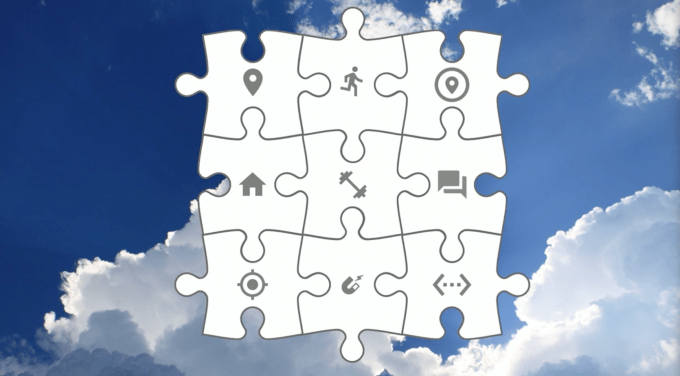
Google suggested a selection of use situations, other than the illustrations earlier mentioned, as to how this features could be executed in long term applications.
For occasion, a smarter alarm clock app could make your mind up when to wake you up based on how late you stayed up the evening ahead of, and when your 1st conference is that working day.
A weather conditions application could sense the Chromecast plugged into your bed room Tv set and task the day’s weather conditions onto the screen.
An assistant application could wake up Google Home to inform you that it is time to go away for your calendar appointment.
A functioning app could right away log your operate for you, even if you forgot to commence the tracking functionality.
A launcher application could place your digicam app front-and-middle when you’re outdoors simply because it knows you get a large amount of character photographs outside. And, as an added bonus, when you snap the photo, it tags it with the weather conditions and exercise. This results in being portion of the photo’s metadata, letting you to later research for “outdoor photographs taken even though functioning and it was sunny outdoors.”
Some of these functions were possible ahead of, if builders used multiple APIs. Even so, Google described that calling upon a number of APIs, relying on circumstances, can drain the battery or make the unit operate sluggishly because of to amplified RAM usage.
That could guide to customers receiving frustrated with the app and potentially even uninstalling it from their cellular phone.
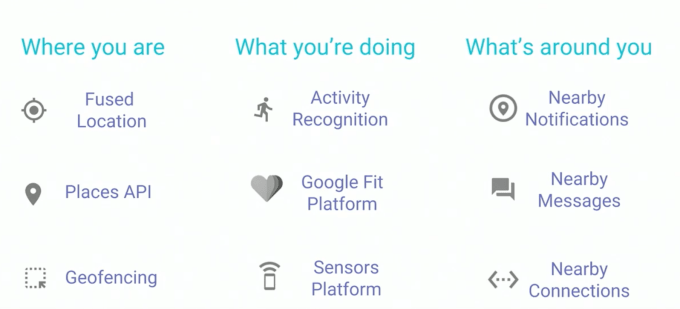
The new Consciousness API, then, not only gives the benefit of requesting all this data about a user’s situation much more simply, it also does so even though optimizing for method overall health. That indicates the applications get smarter without slowing the cellular phone down or killing your battery.
The Consciousness API in fact consists of two distinct APIs – a single that allows applications respond to the present situation (Fence API) and a different to ask for data about the user’s present context (Snapshot API).
While Google’s suggested illustrations audio attention-grabbing, some of the genuine-entire world use situations executed by partners who experienced early entry to the API are a little bit much less inspiring.
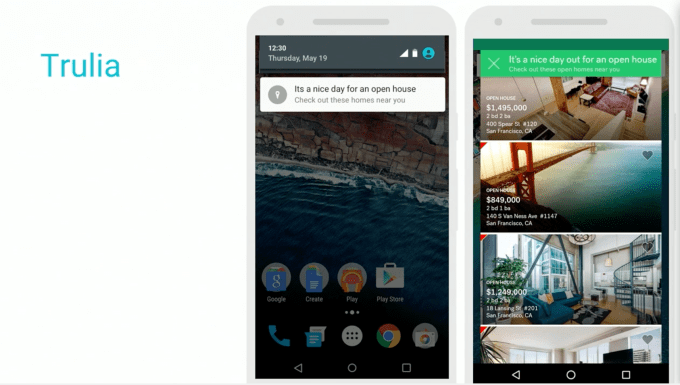
Authentic estate app Trulia, for occasion, is using the API for smarter force notifications. That is, it will inform you to go to an open up household only if you’re close by, walking, and it is nice outdoors.
Runkeeper will permit you tag your functioning posts with the present weather conditions.
GrubHub and Aviary are also tapping into the weather conditions to personalize their applications.
Latin American music streaming app Superplayer New music, however, would seem a little more enjoyment. It will suggest music based on exactly where you are and what you’re doing. If you just received to the health and fitness center, it will advise distinct music than if you’re about to commence a highway journey, for case in point.
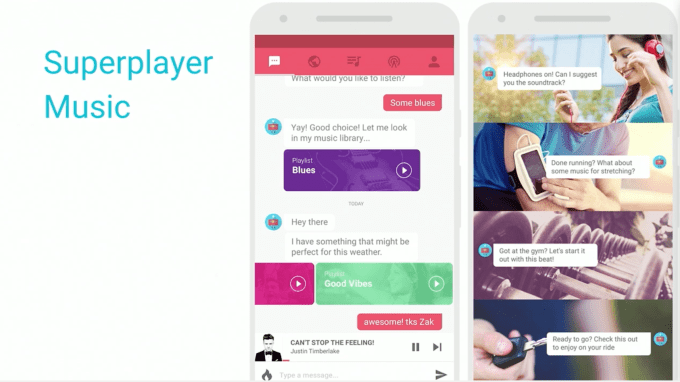
And Android launcher Nova is looking at rewriting its app to be context aware – this means it will present you the right applications at the right time.
Producing a contextually aware cellular working experience is a little something other startups have tried ahead of, generally in the sort of a launcher, like Aviate’s launcher that Yahoo obtained in 2014. But folks have so considerably resisted obtaining their phone’s person interface overhauled in response to their surroundings.
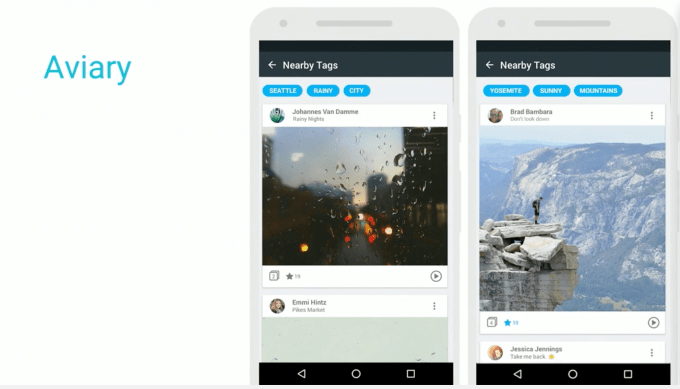
That’s why it will make sense for this situational recognition to grow to be much more deeply embedded in the applications themselves. Rather of asking customers to readjust how they use their cellular phone, the working experience of using the cellular phone just receives far better as notifications get smarter and much less bothersome, applications respond to what you’re doing, and interoperate with other units around you much more seamlessly.
Developers can indication up for early entry here.
Examine A lot more Right here
[ad_2]
Android applications can now respond to your natural environment
-------- First 1000 businesses who contacts http://honestechs.com will receive a business mobile app and the development fee will be waived. Contact us today.
#electronics #technology #tech #electronic #device #gadget #gadgets #instatech #instagood #geek #techie #nerd #techy #photooftheday #computers #laptops #hack #screen
No comments:
Post a Comment